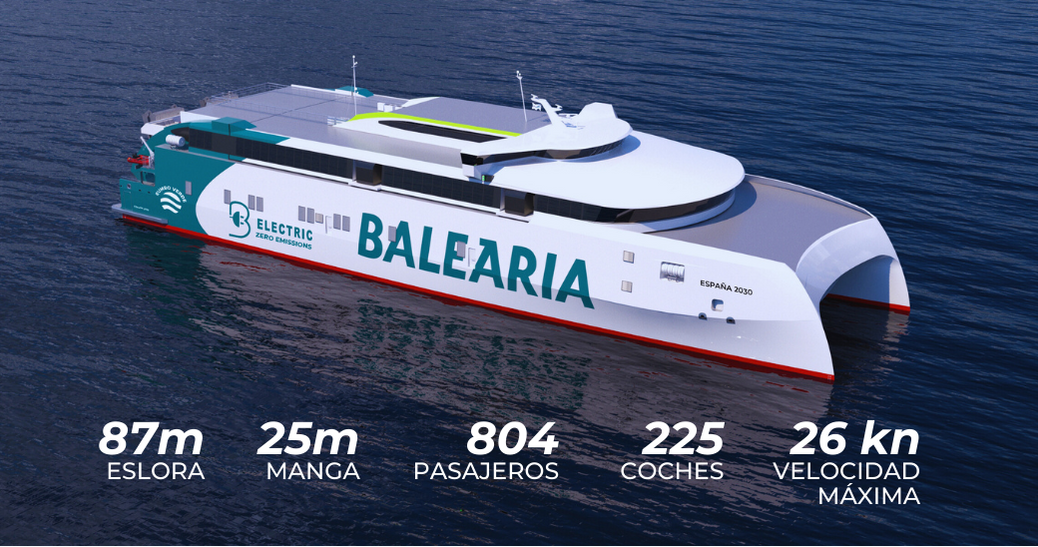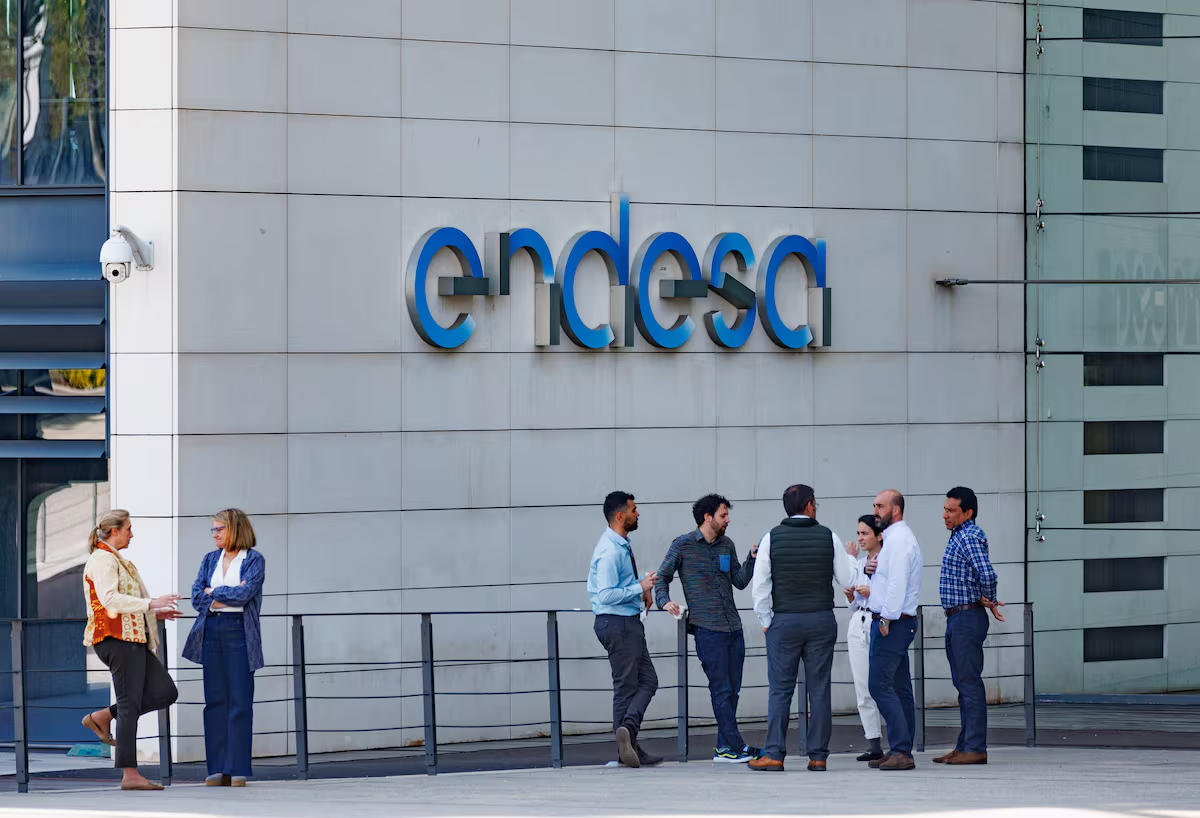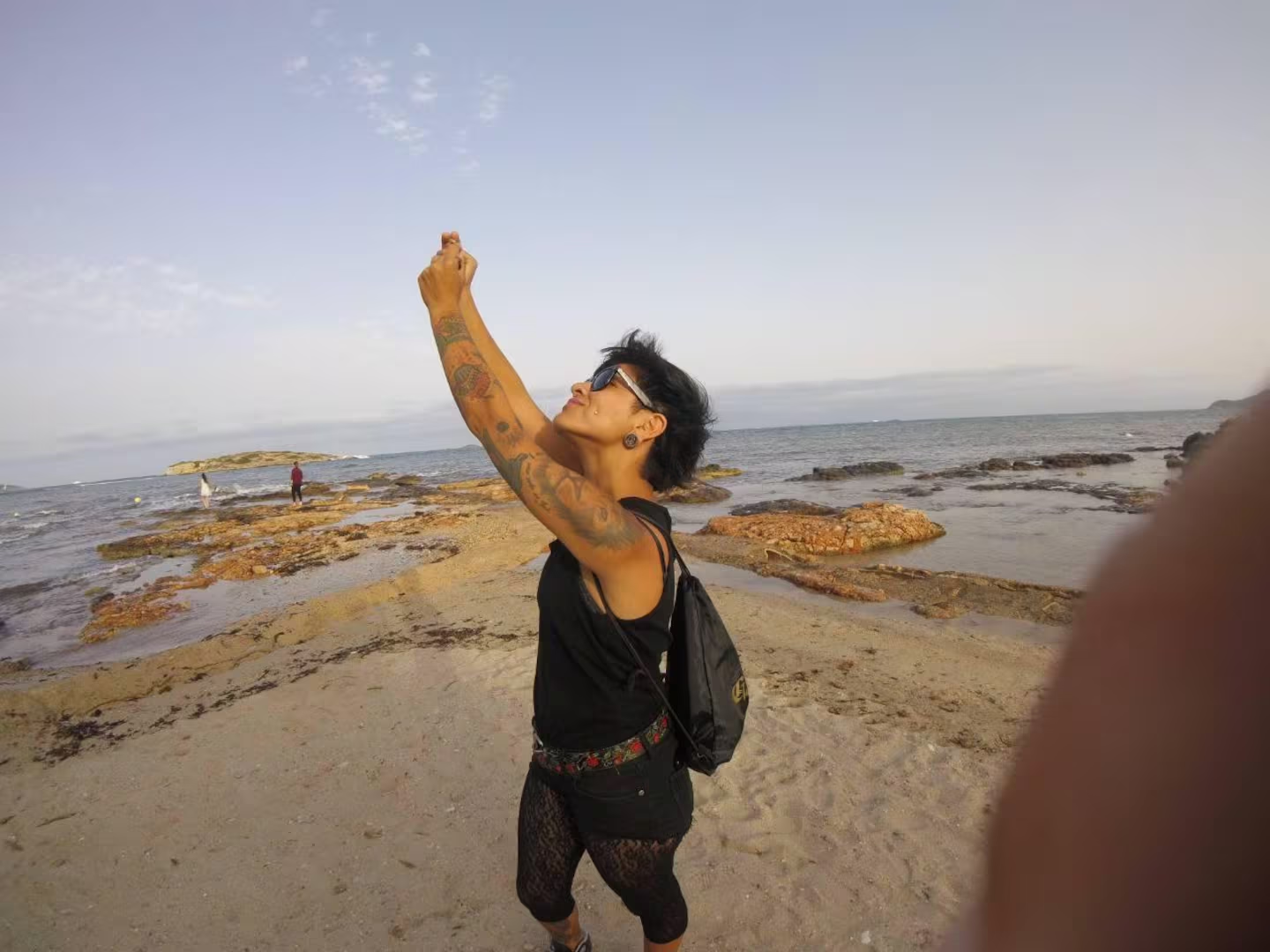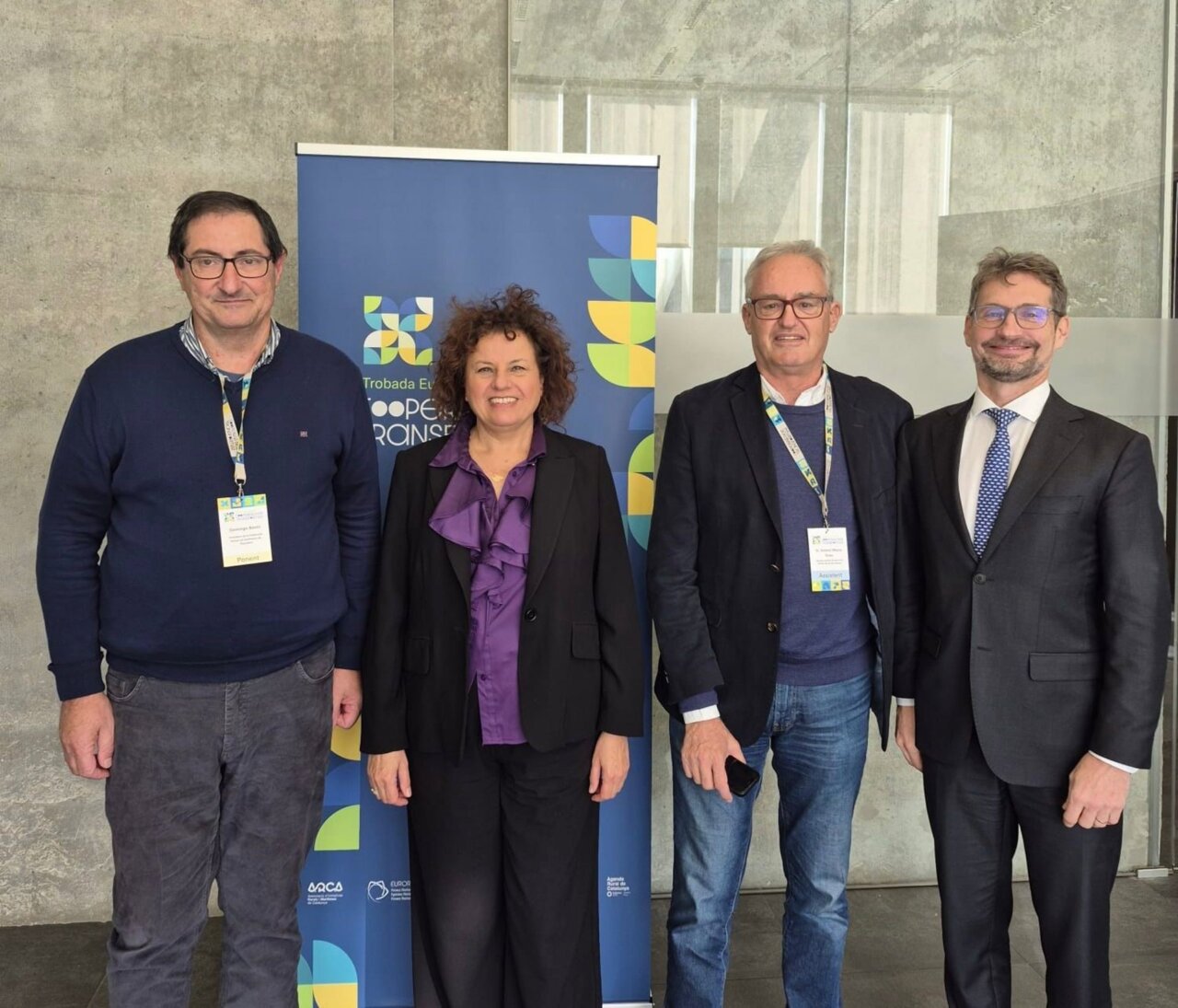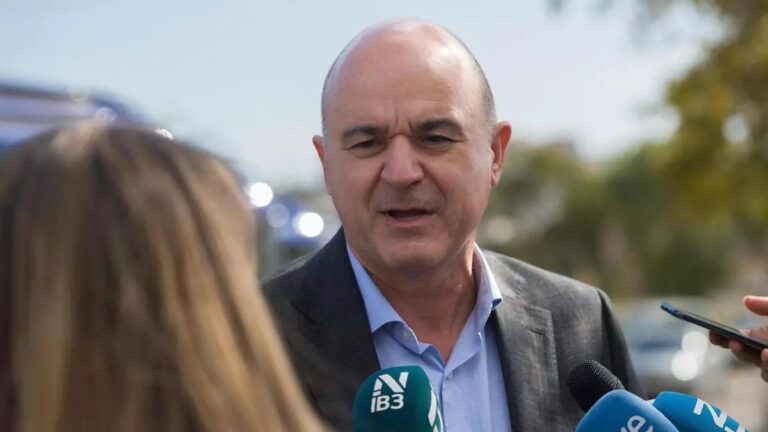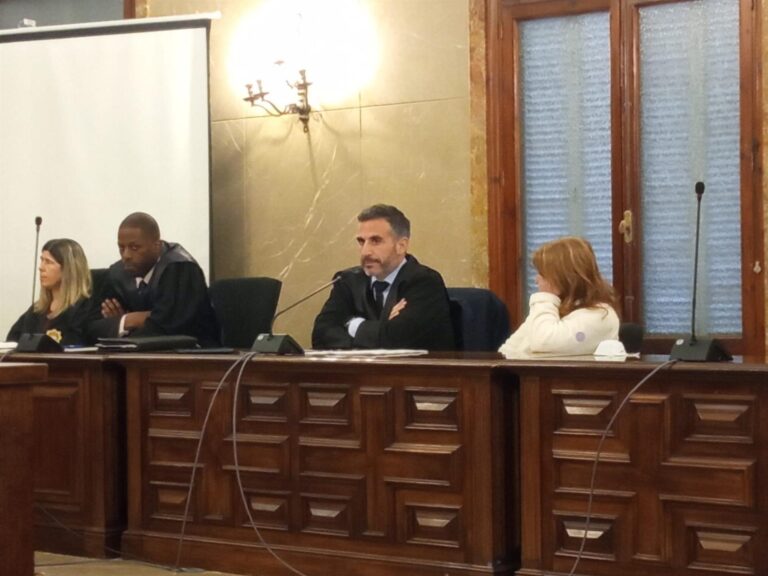Two new fast ferries similar to the Eleanor Roosevelt and Margarita Salas with 100% electric propulsion whose batteries will be charged in 40 minutes during the call through the new batteries installed in the ports of Tarifa and Tangier. This is the proposal with which Baleària has won the public tender called by the Port Authority of the Bay of Algeciras to which Trasmapi also applied to join two ports separated by 17 nautical miles, a distance 54% greater than the 11 miles that separate the port of Ibiza with the port of La Savina de Formentera.
Baleària has used Fitur to present its flagship environmental project for the coming years. It has baptized it as the first green corridor. It is not the first project of its kind in the world. It is expected that by the end of 2025 the 100% electric fast ferry being built in Australia for Buquebus, which will link Buenos Aires with Colonia (Uruguay), separated by 270 kilometers, will be in operation.
Public-private project
“It is a pioneering and technologically advanced public-private project that will allow us to make the entire route for the first time using only electric energy and, therefore, with zero emissions”, detailed the president of the shipping company, Adolfo Utor, for whom we are facing an “example of mobility, modernity and international sustainability”. The tender for the operation of the line for the next 15 years has not yet been definitively resolved.
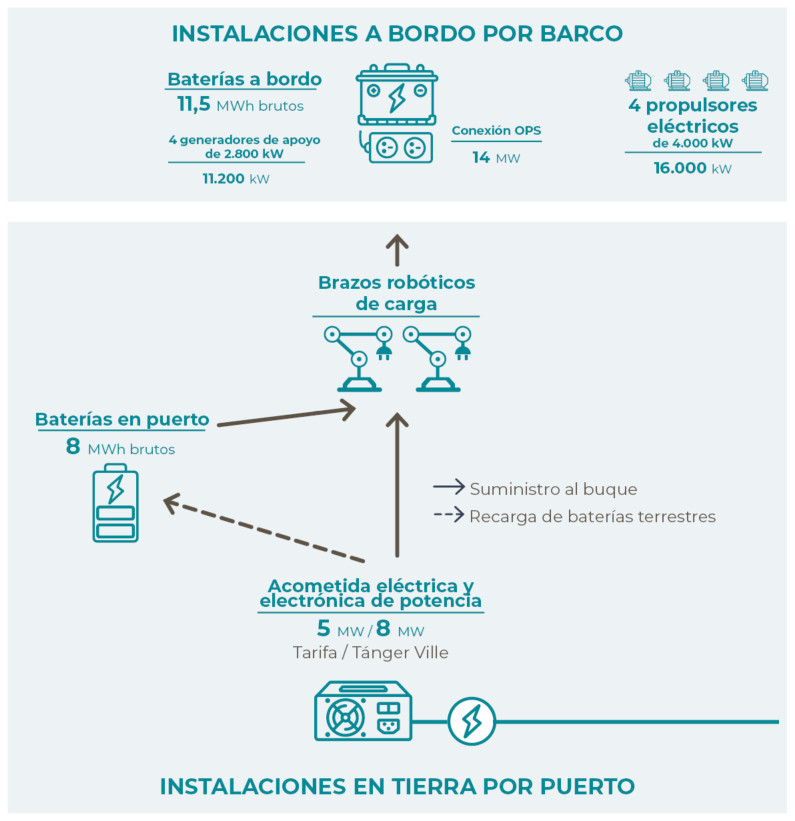
The two fast ferries will be built at the Gijón shipyard Armon, which has been commissioned by the shipping company to build numerous ships. They are expected to be in operation within two and a half years. They are 87 meters long, 25 meters wide and have the capacity to transport 800 passengers and 225 vehicles.
Slower
The innovation comes from the 100% electric propulsion with which they expect to cover the route at a maximum speed of 26 knots, much lower than combustion ships that can reach 40 knots. Each ship will have an electric power of 16 MW, thanks to four battery-powered electric thrusters.
They will be emission-free, noise-free and vibration-free crossings. The ships will be equipped with four diesel generators for emergency backup. Recharging the ships will require the ports to be able to supply the power flow needed for the batteries to be charged at each port of call. The estimated time is 40 minutes. The project contemplates 8 MWh gross batteries that will be connected to the ships through robotic arms. The investment in both ports amounts to 62 million euros.
One step further
The decarbonization of the Ibiza and Formentera line has so far been limited to the entry into operation of the Cap de Barberia, a hybrid ferry that uses batteries for port operations and sails the route with propulsion engines. Trasmapi has carried out tests on one of its vessels to use biofuel on the route between Ibiza and Formentera.

